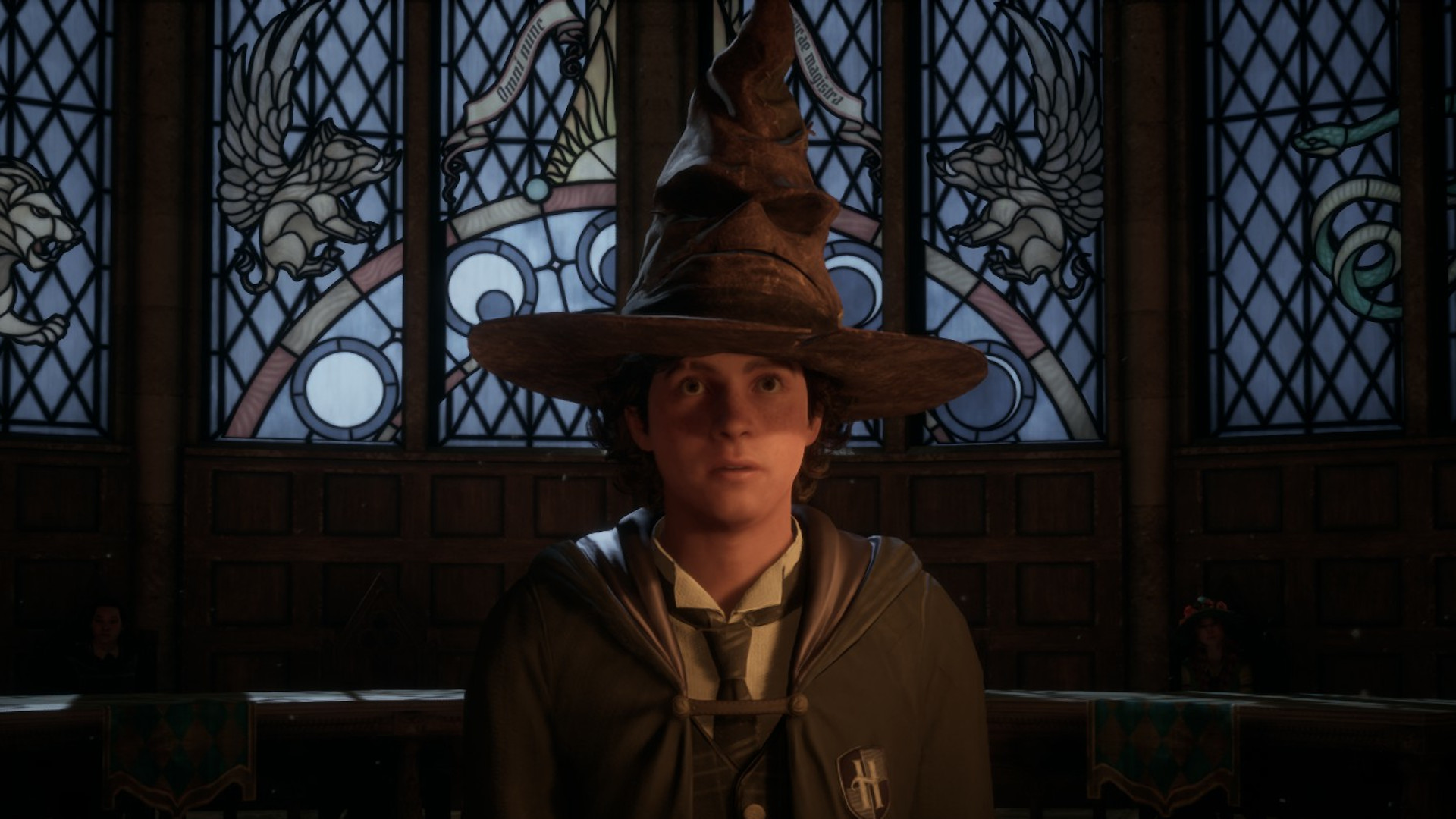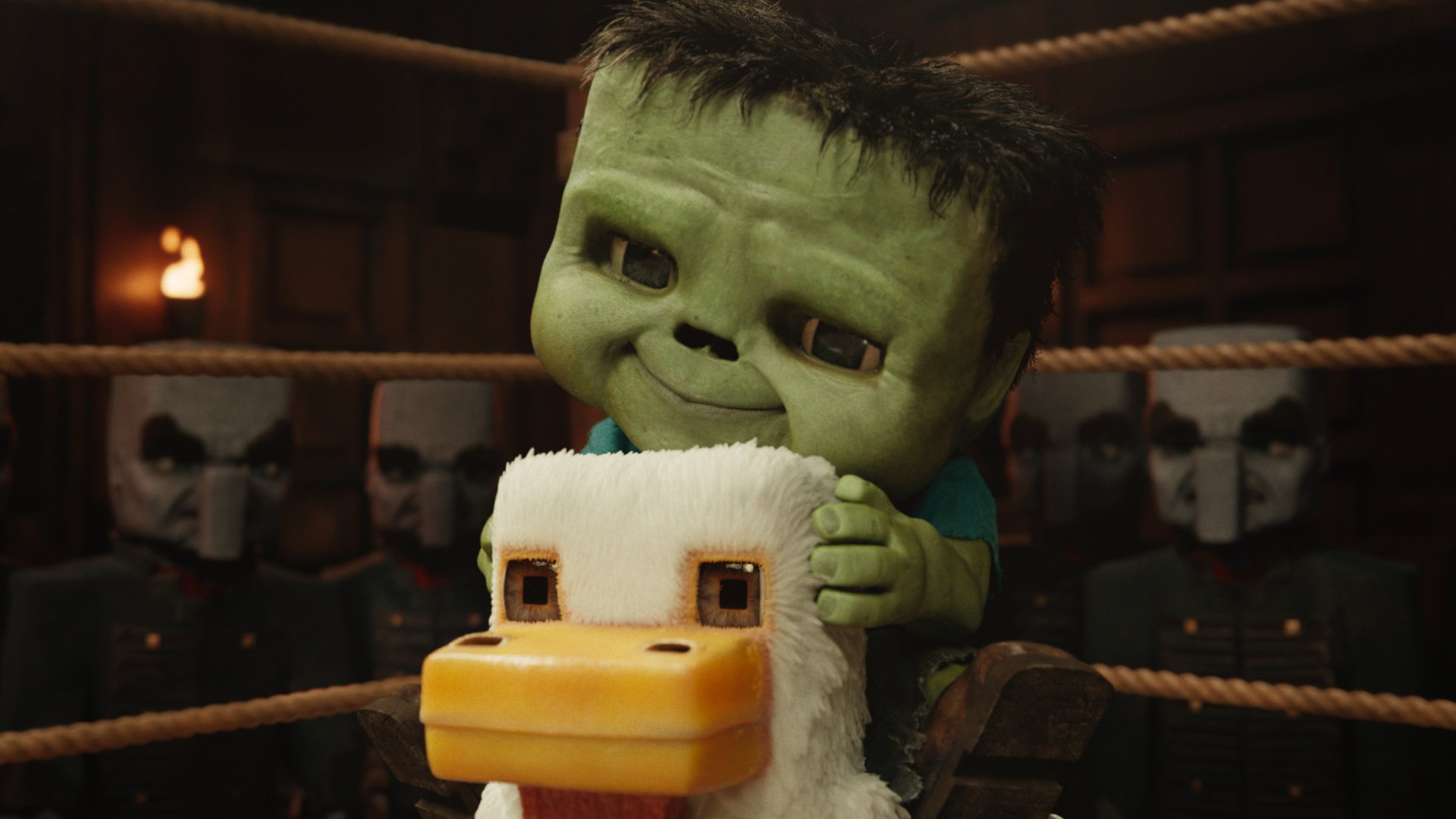I’ve been playing and writing about videogames for an awfully long time now, and I’ve seen my share of controversies come and go. Hot Coffee, anyone? At some point long ago, I may have thought that such things would become increasingly rare as our medium matures.
But it seems that the opposite has happened. As gaming has become bigger and more influential, it’s intersected with a wider set of issues.
2023 was no exception, and so here we are to round up some of the biggest controversies of the year. There are so many, I’m morally required to split these into two articles to reduce the risk of scrolling-related injuries—we’ll have the second half posted in a couple days.
Dungeons and Dragons updates the Open Gaming License
(Image credit: Wizards of the Coast)
Our eyebrows:
What happened: For 20 years, Dungeons and Dragons’ Open Gaming License enabled companies to create tabletop RPGs based on D&D’s rules without having to pay royalties to Wizards of the Coast. That was all thrown into turmoil by a January leak of a planned updated of the OGL: WotC planned to assert stricter control over third-party products, and companies making more than $750,000 on OGL products would be required to start paying fees. The reaction to the planned changes was overwhelmingly negative, leading Wizards of the Coast to apologize and amend its plans, but many of the most contentious points in the updated OGL remained. It also pledged to release the core D&D ruleset under a Creative Commons license. But that wasn’t enough to satisfy the vast majority of the player base, who simply wanted the original OGL to remain in place.
The outcome: The D&D community got what it wanted: After a brief effort to ride out the storm, Wizards of the Coast threw in the towel and walked the whole idea back completely. Still, the damage was done, and numerous third-party publishers, presumably spooked by the whole affair, continued to push forward with efforts to distance themselves from WotC’s grasp.
Hogwarts Legacy grapples with JK Rowling’s legacy
(Image credit: Avalanche Software)
Our eyebrows:
What happened: The trouble with Hogwarts Legacy wasn’t the game but the creator of the Harry Potter franchise, JK Rowling, who for some reason has spent her post-Potter years transforming herself from beloved children’s author to notorious transphobe. Avalanche Software and WB Games did their best to distance the game from Rowling: An FAQ on the Hogwarts Legacy website says the author “was not involved in the creation of the game,” and Avalanche reportedly pushed to have a “trans-inclusive” character creator in the game. Voice actor Sebastian Croft also voiced his support for trans people, tweeting, “I believe whole heartedly that trans women are women and trans men are men.”
Still, the bottom line was that Hogwarts Legacy is a Harry Potter property, and that means Rowling was going to make money from it. That left Harry Potter fans with a dilemma: Should they play the game they’ve been dreaming of, knowing that the author will benefit? Some people took a “forgive-but-not-forget” approach, but others drew a harder line in the sand: One person went so far as to create a website enabling people to see which of their Twitch followers had streamed the game, presumably so they could express their ire or perhaps unfollow altogether.
For die-hard Potter fans, the situation was made more difficult by the fact that Hogwarts Legacy turned out to be quite good.
The outcome: Despite the uproar, Hogwarts Legacy was a big hit, Warner made an actual billion bucks across 15M copies in five months, and we’ll no doubt be seeing sequels in the future. Rowling, for the record, remains an unrepentant transphobe.
Atomic Heart includes a racist cartoon
(Image credit: Mundfish)
Our eyebrows:
What happened: Atomic Heart was already facing controversy over developer Mundfish’s Russian roots sparked by the invasion of Ukraine and concerns that the game might seek to glorify the Soviet Union and rehabilitate the KGB, its notorious intelligence agency. A different and more concrete issue came to light early in the year when players noticed the appearance of a racist caricature in a clip of Nu, Pogodi!, a beloved Tom and Jerry-style Soviet children’s cartoon that first aired in 1969: Segments of the show appear on television sets in the game’s safe rooms and they’re generally pretty innocuous, but one bit contained a dated (to put it politely) depiction of an African tribesman shooting a bow and arrow. As we noted at the time, it’s the sort of thing that would carry a content warning similar to what Disney has added to its classic films when they air on streaming services, but it appeared in Atomic Heart completely without context.
The outcome: A few days later, developer Mundfish apologized for the inclusion of the clip, and pledged to edit the relevant bits.
Six Days in Fallujah finally comes out
(Image credit: Victura)
Our eyebrows:
What happened: The military shooter Six Days in Fallujah sparked immediate outrage when it was announced in 2009. Developer Atomic Games promised it would be a sensitive and fair treatment of the infamous 2004 battle, with input from US Marines, Iraqi insurgents and civilians, historians, and senior US military commanders. But the use of a contemporary, then-ongoing US war as a setting for a videogame did not fly: Six Days was quickly dropped by publisher Konami, and the whole thing fell off the map and was forgotten until a surprise return in 2021. That triggered a a second backlash over fears that it would glorify or distort the events of the war, but the pushback wasn’t as furious: The Council on American-Islamic Relations called on Valve, Microsoft, and Sony to refuse to distribute the game, but more generally there seemed to be a resigned acceptance that Six Days was going to happen, wrapped in a hope that it wouldn’t be as bad as some feared.
The outcome: When it finally arrived in June it was thoroughly unremarkable, in large part because it was an early access release and thus missing most of the promised content. But what we saw didn’t give us much hope that the game would achieve its lofty goals. It was “just a barebones milsim,” we said at the time, lacking any of the context that was promised: “What I’m seeing is a game that’s more interested in depicting American valor than the actual losers of the story it’s telling: Fallujah,” staff writer Morgan Park declared.
Reddit goes dark
(Image credit: Reddit)
Our eyebrows:
What happened: Reddit announced planned changes to its developer terms in April that would, among other things, enforce a rate limit on access to its free API and introduce a new “premium” option for developers who want more. And it was really premium: The creator of the Apollo Reddit client for iOS estimated it would cost him $20 million per year to keep his client operating at the new rate. It was an extremely unpopular move, and in response thousands of subreddits took part in what became known as Reddark: A 48-hour shutdown in protest of the planned changes. That’s just a tiny slice of the total number of the estimated 2.8 million or so subreddits floating around out there, but it included some of the biggest and totalled a combined subscriber count of more than 2.5 billion.
The outcome: Some subreddits stayed dark beyond the planned 48 hour window, prompting Reddit to pressure moderators to reopen, and threatening to remove those who did not. Protests continued in different forms—users on the Steam subreddit, for instance, began posting messages about literal steam—but in the end it was pretty much a return to business as usual: Most subreddits reopened, and the API changes rolled out as planned. The Apollo client, sadly, is no more.
Linus Tech Tips gets sloppy
(Image credit: Linus Tech Tips)
Our eyebrows:
What happened: The popular YouTube channel Linus Tech Tips came under fire in August after a botched installation of Billet Labs’ Monoblock cooling system led to a strong recommendation against it: “The experience of building with it is a nightmare,” channel founder Linus Sebastian declared, “and the advantages over literally any other solution are negligible.”
That led to a callout from competing channel Gamers Nexus, which accused it of “rushing content out the door” in order to achieve “quantity over quality.” Gamers Nexus also accused LTT of selling the one-of-a-kind Monoblock prototype, rather than returning it to the manufacturer as promised. After initially defending the work, LTT posted an apology video that concluded with Sebastian admitting that he’d taken the complaints personally and overreacted to them, although he continued to defend the channel’s behind-the-scenes dealing with Billet Labs. The channel also suspended production for a week in order to work on improving its content.
But that apology was something of a flop among followers, who felt it was too jokey and focused more on promoting items in the LTT store than on actually addressing complaints. Allegations shared by former LTT social media manager Madison Reeve, who said on Twitter that she was forced to leave the company because the toxic work environment and pressure to produce content was “ruining [her] mental health,” eventually prompted a more serious response from LTT CEO Terren Tong, who told PC Gamer that the company would conduct a “thorough assessment of the allegations,” including hiring an outside investigator, “and will commit to publishing the findings and implementing any corrective actions that may arise because of this.”
The outcome: There’s been no word on the results of those investigations at this point, and while analytics sites like Social Blade and VidIQ indicate that the channel’s viewership took a hit as a result of the controversy, it appears to have bounced back to relatively normal levels since.
Lies of P won’t say ACAB
(Image credit: Neowiz)
Our eyebrows:
What happened: An early Lies of P gameplay trailer featured a brief appearance of a decapitated figure strung up in the arches of a bridge, with a crudely painted sign bearing the message APAB hanging from its neck. The message was obviously a play on ACAB, an acronym meaning All Cops Are Bastards that’s taken on a charged political connotation in recent years due to its adoption by people opposed to police violence. But sharp-eyed fans noticed that the message was gone in later videos—in its place was a different sign saying “Purge Puppets.”
Lies of P director Ji-Won Choi later confirmed that the message did in fact stand for All Puppets Are Bastards, and said that it was removed in order to avoid controversy. “We took it out eventually because we wanted everyone to enjoy the game exactly how we intended it to be enjoyed, and not judged based on any trends,” Choi said. “We really wanted the world that we designed to be interpreted by the players exactly how we aimed it to be, so we took out factors that could be a little risky.”
The outcome: Proactive self-censorship is rarely a good idea, but neither is co-opting real-world social struggles for a videogame backdrop. And unlike Deus Ex: Mankind Divided’s use of “Mechanical Apartheid” and “Augs Lives Matter” in marketing materials, in this case it was a single sign, not intrinsically tied to the game’s narrative, and the whole thing blew over pretty quickly. And Lies of P turned out to be pretty good.
















